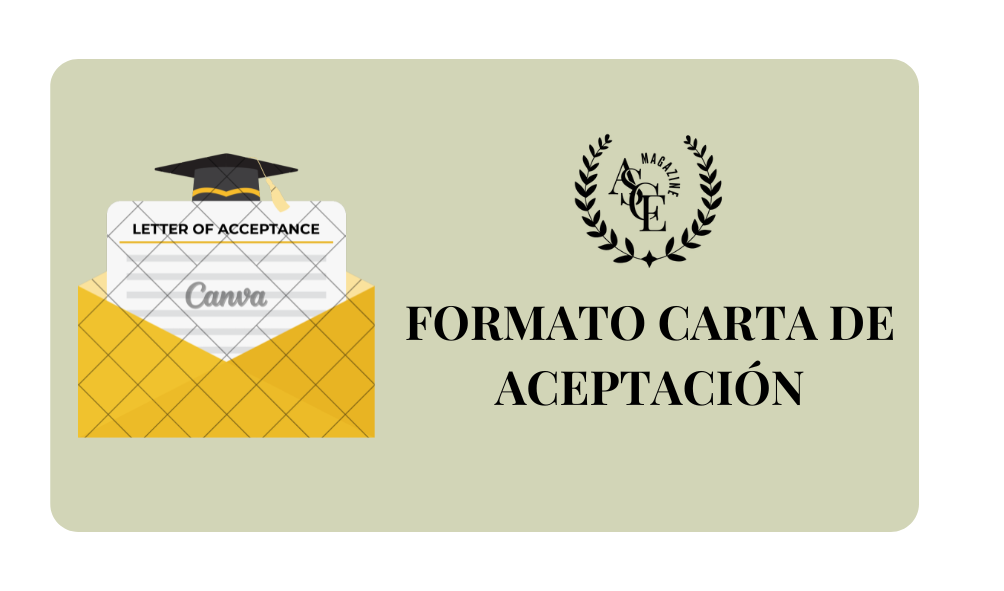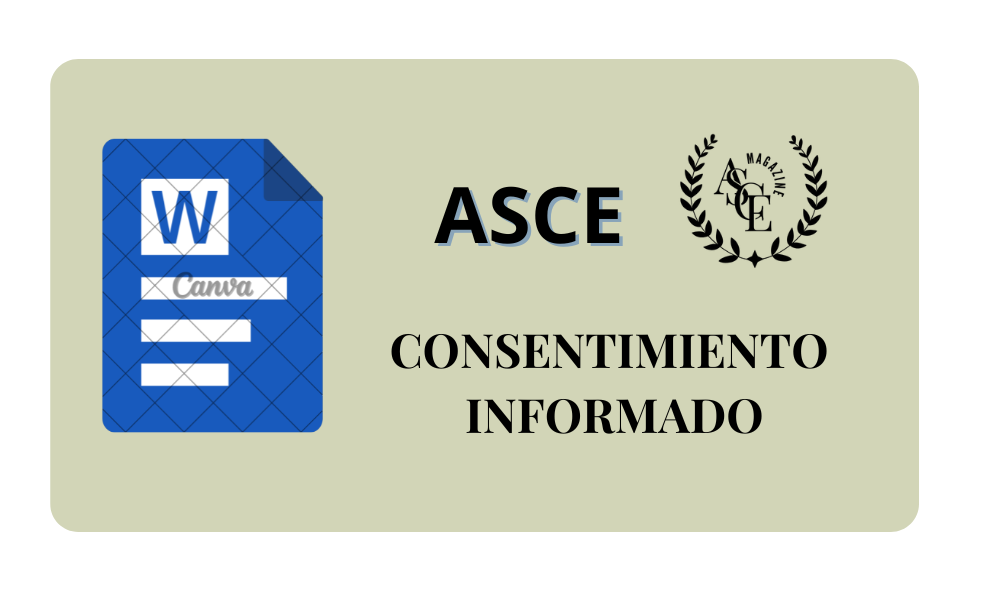Impact of digital symbolic play on the development of executive function in children aged 4 to 5 years
DOI:
https://doi.org/10.70577/ASCE/161.185/2025Keywords:
Digital symbolic play;Executive function;Early childhood education.Abstract
This study sought to examine the impact of digital symbolic play on the development of executive function in children aged 4 to 5 years, focusing specifically on inhibition, working memory, cognitive flexibility, and perspective-taking. This research is warranted due to the scarce empirical evidence regarding the influence of digital symbolic experiences on the cultivation of complex cognitive skills in early childhood, especially in preschool education within Latin American contexts, where these methodologies are still relatively innovative.The study population comprised 120 preschool children, categorized into control and experimental groups, from diverse metropolitan educational institutions. A multifactorial experiment was executed, encompassing a 10-week intervention structured within a mixed-method, quasi-experimental framework. Quantitative data were gathered utilizing instruments such as the Minnesota Executive Function Scale (MEFS). A control group of 120 children from urban educational facilities was analyzed to measure the quantitative variable using the MEFS, the Stroop Sun–Moon test, semantic fluency tests, and the BRIEF-P behavioral scale. The qualitative aspect was examined using organized classroom observations and semi-structured interviews with educators, enabling researchers to directly monitor executive behaviors during play. The findings indicated substantial enhancements in all areas of executive function for the intervention group, especially in inhibitory control and symbolic planning, relative to the control group. Participating teachers reported qualitative advancements in emotionally self-regulated behaviors, symbolic conflict resolution, and attention. Data triangulation confirmed the beneficial effects of digital symbolic play as an educational intervention aimed at enhancing executive functions in young children. The findings highlight the significance of incorporating digital symbolic resources into preschool education, contingent upon their intentional use within a structured pedagogical framework. The study concluded that digital symbolic play is an innovative, effective, and culturally suitable instrument for promoting neurocognitive development and fostering meaningful learning in preschool-aged children. Additional longitudinal studies were suggested to investigate the enduring effects of these therapies over time.
Downloads
References
Barrios, J., & Rojas, A. (2021). Juego simbólico y desarrollo cognitivo: una revisión crítica. Revista Venezolana de Educación, 18(2), 95–108. https://www.redalyc.org/articulo.oa?id=55347622006
Benson, J., Sabbagh, M., Carlson, S. M., & Zelazo, P. D. (2013). Individual differences in executive functioning predict preschoolers’ improvement from theory-of-mind training. Developmental Psychology, 49(8), 1615–1627. https://doi.org/10.1037/a0031056 DOI: https://doi.org/10.1037/a0031056
Berenguer, C., Baixauli, I., & Roselló, B. (2021). Executive function and academic performance in preschool children: A meta-analysis. Frontiers in Psychology, 12, 607510. https://doi.org/10.3389/fpsyg.2021.607510
Bernal Parraga, A. P., Ibarvo Arias, J. A., Amaguaña Cotacachi, E. J., Gloria Aracely, C. T., Constante Olmedo, D. F., Valarezo Espinosa, G. H., & Poveda Gómez, J. A. (2025). Innovación Metodológica en la Enseñanza de las Ciencias Naturales: Integración de Realidad Aumentada y Aprendizaje Basado en Proyectos para Potenciar la Comprensión Científica en Educación Básica. Revista Científica de Salud y Desarrollo Humano, 6(2), 488–513. https://doi.org/10.61368/r.s.d.h.v6i2.613 DOI: https://doi.org/10.61368/r.s.d.h.v6i2.613
Bernal Parraga, A. P., Salazar Véliz, E. T., Zambrano Lamilla, L. M., Espinoza Jaramillo, S. G., Morales García, C. S., Shinger Hipatia, N. S., & Zapata Calderón, S. J. (2025). Innovaciones Didácticas para Lengua y Literatura Basadas en el Aprendizaje Personalizado y Colaborativo. Revista Científica de Salud y Desarrollo Humano, 6(2), 01–32. https://doi.org/10.61368/r.s.d.h.v6i2.574 DOI: https://doi.org/10.61368/r.s.d.h.v6i2.574
Bernal Párraga, A. P., Toapanta Guonoquiza, M. J., Martínez Oviedo, M. Y., Correa Pardo, J. A., Ortiz Rosillo, A., Guerra Altamirano, I. del C., & Molina Ayala, R. E. (2024). Aprendizaje Basado en Role-Playing: Fomentando la Creatividad y el Pensamiento Crítico desde Temprana Edad. Ciencia Latina Revista Científica Multidisciplinar, 8(4), 1437–1461. https://doi.org/10.37811/cl_rcm.v8i4.12389 DOI: https://doi.org/10.37811/cl_rcm.v8i4.12389
Bernal-Bernal, J., & Castro, G. (2021). Rol docente en el desarrollo de funciones ejecutivas mediante tecnología. Revista Iberoamericana de Psicología Educativa, 14(1), 55–70. https://dialnet.unirioja.es/servlet/articulo?codigo=7894567
Building Brains and Futures curriculum games. (2019). Frontiers in Psychology. https://doi.org/10.3389/fpsyg.2021.720225
Bustamante Mora, F. F., Troya Santillán, B. N., Barboto Sanabria, C. M., Hernández Centeno, J. A., Martínez Oviedo, M. Y., Valencia Trujillo, G. D., & Bernal Parraga, A. P. (2024). El Impacto del Juego en el Desarrollo Cognitivo y Socioemocional en la Educación Inicial: Estrategias Pedagógicas para Fomentar el Aprendizaje. Ciencia Latina Revista Científica Multidisciplinar, 8(5), 4201–4217. https://doi.org/10.37811/cl_rcm.v8i5.13886 DOI: https://doi.org/10.37811/cl_rcm.v8i5.13886
Carlson, S. M. (2005). Developmentally sensitive measures of executive function in preschool children. Developmental Neuropsychology, 28(2), 595–616. https://doi.org/10.1207/s15326942dn2802_4 DOI: https://doi.org/10.1207/s15326942dn2802_3
Carlson, S. M., & Meltzoff, A. (2008). Bilingual experience and executive functioning in young children. Developmental Science, 11(2), 282–298. https://doi.org/10.1111/j.1467-7687.2008.00675.x DOI: https://doi.org/10.1111/j.1467-7687.2008.00675.x
Carlson, S. M., & Moses, L. J. (2001). Individual differences in inhibitory control and children's theory of mind. Child Development, 72(4), 1032–1046. https://doi.org/10.1111/1467-8624.00333 DOI: https://doi.org/10.1111/1467-8624.00333
Carlson, S. M., & Wang, T. S. (2007). Inhibitory control and emotion regulation in preschool children. Cognitive Development, 22(4), 489–510. https://doi.org/10.1016/j.cogdev.2007.08.001 DOI: https://doi.org/10.1016/j.cogdev.2007.08.002
Carlson, S. M., Faja, S., & Beck, D. M. (2015). Incorporating early development into measurement approaches: The need for a continuum of measures across development. In J. A. Griffin, P. McCardle, & L. S. Freund (Eds.), Executive function in preschool-age children: Integrating measurement, neurodevelopment, and translational research (pp. 45–64). American Psychological Association. https://doi.org/10.1037/14547-003 DOI: https://doi.org/10.1037/14797-003
Carretti, B., Borella, E., Cornoldi, C., & De Beni, R. (2022). Working memory and executive function development in preschoolers: A training study. Journal of Cognitive Development, 23(1), 10–29. https://doi.org/10.1080/15248372.2021.2010431
Coelho, L. A., Amatto, A. N., Gonzalez, C. L. R., & Gibb, R. L. (2018). Building executive function in preschool children through play: A curriculum. Frontiers in Psychology, 9, Article 720225. https://doi.org/10.3389/fpsyg.2021.720225 DOI: https://doi.org/10.3389/fpsyg.2021.720225
Cuesta-Gómez, J. L., & López-Belmonte, J. (2022). Función ejecutiva y juego digital. Comunicar, 30(71), 81–89. https://doi.org/10.3916/C71-2022-07 DOI: https://doi.org/10.3916/C71-2022-07
De la Fuente, R., Moreno, F., & Salgado, J. (2022). Realidad aumentada y neuroeducación en educación inicial. Revista de Investigación Educativa, 40(1), 105–122. https://doi.org/10.6018/rie.469921
Diamond, A. (2013). Executive functions. Annual Review of Psychology, 64, 135–168. https://doi.org/10.1146/annurev-psych-113011-143750 DOI: https://doi.org/10.1146/annurev-psych-113011-143750
Doebel, S., & Zelazo, P. D. (2015). A meta-analysis of the Dimensional Change Card Sort: Implications for developmental theories and the measurement of executive function in children. Developmental Review, 38, 241–268. https://doi.org/10.1016/j.dr.2015.09.001 DOI: https://doi.org/10.1016/j.dr.2015.09.001
Espinet, S. D., Anderson, J. E., & Zelazo, P. D. (2013). Reflection training improves executive function in preschool-age children: Behavioral and neural effects. Developmental Cognitive Neuroscience, 4, 3–10. https://doi.org/10.1016/j.dcn.2012.11.009 DOI: https://doi.org/10.1016/j.dcn.2012.11.009
Figueroa, M., & Sánchez, L. (2023). Tecnologías digitales y regulación cognitiva infantil. Revista Educación y Desarrollo, 27(3), 39–53. https://www.scielo.org.mx/scielo.php?script=sci_arttext&pid=S1665-109X2023000300039
García-Holgado, A., Saldaña, J., & Conde, M. A. (2023). Recursos digitales para educación infantil: una propuesta AR. Journal of Learning Analytics, 10(1), 55–66. https://doi.org/10.18608/jla.2023.7540
Gil-Espinosa, F. J., García-Rodicio, H., & Valenzuela, J. (2023). Digital play and executive functions in preschool: A systematic review. Early Child Development and Care, 193(1), 1–15. https://doi.org/10.1080/03004430.2021.1987341
Gil-Madrona, P., & Sastre, L. (2022). Funciones ejecutivas y rendimiento escolar. Revista Fuentes, 24(2), 77–92. https://doi.org/10.12795/revistafuentes.2022.v24.i2.06
González-López, A., & Vélez-Torres, M. (2022). Impacto de juegos digitales en la planificación infantil. Educación y Humanismo, 24(42), 105–118. https://doi.org/10.17081/eduhum.24.42.5122
Hernández, A., Soto, V., & Reyes, I. (2023). Neuroplasticidad y juego simbólico digital. Revista de Psicología Cognitiva, 9(1), 33–48. https://doi.org/10.19053/psicog.2023.00948
Herrera‑Occ, M. C., & Gonzales‑Soto, V. A. (2023). El juego simbólico en el desarrollo de competencias en la primera infancia. Revista Tecnológica‑Educativa Docentes 2.0, 16(2), 39–49. https://doi.org/10.37843/rted.v16i2.372 DOI: https://doi.org/10.37843/rted.v16i2.372
Lahat, A., Helwig, C., & Zelazo, P. D. (2013). An event-related potential study of adolescents’ and young adults’ judgments of moral and social conventional violations. Child Development, 84(3), 955–969. https://doi.org/10.1111/cdev.12001 DOI: https://doi.org/10.1111/cdev.12001
Li, H., Wu, D., Yang, J., Luo, J., Xie, S., & Chang, C. (2021). Tablet use affects preschoolers’ executive function: fNIRS evidence from the Dimensional Change Card Sort Task. Brain Sciences, 11(5), Article 567. https://doi.org/10.3390/brainsci11050567 DOI: https://doi.org/10.3390/brainsci11050567
Martínez-Cascales, M., López, C., & Pérez, A. (2023). Estrategias neuroeducativas en educación preescolar. Revista Electrónica de Investigación Educativa, 25(1), e29. https://doi.org/10.24320/redie.2023.25.e29 DOI: https://doi.org/10.24320/redie.2023.25.e12.4965
Morales-Chacón, M., Gutiérrez, M., & Duarte, C. (2022). Realidad aumentada y habilidades cognitivas. Revista Iberoamericana de Tecnologías del Aprendizaje, 17(3), 110–117. https://doi.org/10.1109/RITA.2022.3178987
Paliza, Y., Paucar, I., Villegas, S., Alcántara, J., & Espinosa, Z. (2025). El juego simbólico: un recurso de aprendizaje temprano. Revista InveCom, 5(4), 1–8. https://zenodo.org/records/15009213
Pratiwi, Y., Retnowati, A., & Sutarni, S. (2020). Digital Game-Based Learning to Improve Executive Function in Preschoolers. Journal of Educational and Developmental Psychology, 10(2), 25–35. https://doi.org/10.5539/jedp.v10n2p25 DOI: https://doi.org/10.5539/jedp.v10n2p25
Pratiwi, D., Widodo, H., & Riyadi, R. (2020). Digital game-based learning: Effects on student engagement and executive function in early childhood. International Journal of Instruction, 13(4), 109–124. https://doi.org/10.29333/iji.2020.1348a DOI: https://doi.org/10.29333/iji.2020.1348a
Ramírez, P., Uribe, T., & Quezada, A. (2021). Juego simbólico digital: un estudio empírico. Perspectivas Educativas, 60(1), 89–102. https://www.redalyc.org/articulo.oa?id=56321147009
Reyes, L., & Valencia, R. (2023). Inteligencia artificial y gamificación en el desarrollo ejecutivo infantil. Revista Sophia, 33(1), 45–60. https://doi.org/10.17163/soph.n33.2023.03
Rodríguez, M. L., & Ramírez-Montoya, M. S. (2021). Gamificación para el desarrollo cognitivo: Aplicaciones en contextos de educación preescolar. Revista Iberoamericana de Educación, 87(1), 83–100. https://doi.org/10.35362/rie8714245
Salas, M., & Méndez, L. (2021). Funciones ejecutivas y juegos digitales en niños de 4 a 6 años: revisión sistemática. Psicología desde el Caribe, 38(3), 211–230. https://doi.org/10.14482/psdc.38.3.824.69
Salinas, M., Ortiz, E., & Vera, J. (2023). Estilos de aprendizaje y tecnologías emergentes. Revista Electrónica de Educación, 17(1), 21–36. https://doi.org/10.23923/ree.2023.17.1.302
Sánchez-Olivares, M., Álvarez, P., & Castillo, L. (2021). Cognición, juego y tecnología: un abordaje desde la educación. Revista Prisma Social, 33, 109–123. https://revistaprismasocial.es/article/view/4051
SciELO Rosario. (2016). Juego simbólico y habilidades cognitivas en la infancia temprana: estudios empíricos desde la neuropsicología educativa. Anuario de Investigaciones, 23(1), 123–138. https://revistascientificas.unr.edu.ar/index.php/Anuario/article/view/159
SciELO Lima. (2023). El enfoque sociocultural y la mediación en el aprendizaje infantil: una revisión teórica. Revista de Educación y Cultura, 29(2), 45–60. https://www.scielo.org.pe/scielo.php?script=sci_arttext&pid=S2304-42982023000200045
Solovieva, Y., & Quintanar, L. (2021). Desarrollo de la autorregulación a través del juego simbólico en preescolares. Revista Electrónica de Psicología Iztacala, 24(2), 25–40. https://psicologia.iztacala.unam.mx/revista
Sutherland, S. L., & Friedman, O. (2013). Just pretending can be really learning: Children use pretend play as a source for acquiring generic knowledge. Developmental Psychology, 49(9), 1660–1668. https://doi.org/10.1037/a0030470 DOI: https://doi.org/10.1037/a0030788
Thibodeau-Nielsen, R. B., Gilpin, A. T., Palermo, F., Nancarrow, A. F., Brown Farrell, C., Turley, D., … Johnson, J. E. (2016). The effects of fantastical pretend-play on the development of executive functions: An intervention study. Journal of Experimental Child Psychology, 145, 120–138. https://doi.org/10.1016/j.jecp.2016.01.001 DOI: https://doi.org/10.1016/j.jecp.2016.01.001
UNESCO. (2022). Reimaginar juntos nuestros futuros: Un nuevo contrato social para la educación. Organización de las Naciones Unidas para la Educación, la Ciencia y la Cultura. https://unesdoc.unesco.org/ark:/48223/pf0000379707 DOI: https://doi.org/10.22201/iisue.24486167e.2022.177.61072
Valverde, A., & Larios, B. (2023). Interacción lúdica y plasticidad cerebral. Revista Ciencias del Desarrollo, 18(2), 100–113. https://doi.org/10.22370/cd.2023.18.2.1389
Varela-Toucedo, P., & Cid-Muñoz, L. (2022). Tiempo de pantalla y autorregulación en la infancia. Revista de Estudios Educativos, 10(3), 75–88. https://www.redalyc.org/articulo.oa?id=56311052003
Vega, J. & López, M. (2022). Tecnología educativa en primera infancia. Revista Colombiana de Educación, 86, 65–82. https://doi.org/10.17227/rce.num86-11738
Véliz, G., & Rojas, M. (2020). Estimulación de funciones ejecutivas mediante actividades digitales en niños de educación parvularia. Revista Electrónica Educare, 24(3), 1–20. https://doi.org/10.15359/ree.24-3.7 DOI: https://doi.org/10.15359/ree.24-3.7
Weisberg, D. S. (2013). Distinguishing imagination. In R. N. McCrae (Ed.), The Oxford Handbook of the Development of Imagination (pp. 75–92). Oxford University Press. DOI: https://doi.org/10.1093/oxfordhb/9780195395761.013.0006
White, R. E., & Carlson, S. M. (2021). Pretending with realistic and fantastical stories facilitates executive function in 3‑year‑old children. Journal of Experimental Child Psychology, 207, Article 105090. https://doi.org/10.1016/j.jecp.2021.105090 DOI: https://doi.org/10.1016/j.jecp.2021.105090
Zambrano Vergara, B. J., Bernal Párraga, A. P., Nivela Cedeño, A. N., Garcia Jimenez, D. I., Guevara Guevara, N. P., & Bravo Alcívar, G. M. (2024). Estrategias de Gestión de Aula para Fomentar el Aprendizaje Autónomo en la Educación Inicial. Ciencia Latina Revista Científica Multidisciplinar, 8(3), 5379–5406. https://doi.org/10.37811/cl_rcm.v8i3.11745 DOI: https://doi.org/10.37811/cl_rcm.v8i3.11745
Zambrano, D., & Torres, M. (2023). Mediación pedagógica y experiencias digitales en educación inicial. Revista Ecuatoriana de Pedagogía, 7(2), 55–70. https://doi.org/10.32719/26312816.2023.7.2.4
Zelazo, P. D. (2006). The dimensional change card sort (DCCS): A method of assessing executive function in children. Nature Protocols, 1, 297–301. https://doi.org/10.1038/nprot.2006.46 DOI: https://doi.org/10.1038/nprot.2006.46
Zelazo, P. D., Anderson, J. E., Richler, J., Wallner-Allen, K., Beaumont, J. L., Conway, K. P., Gershon, R., & Weintraub, S. (2014). NIH Toolbox Cognition Battery (CB): Validation of executive function measures in adults. Journal of the International Neuropsychological Society, 20(6), 620–629. https://doi.org/10.1017/S1355617714000472 DOI: https://doi.org/10.1017/S1355617714000472
Downloads
Published
How to Cite
Issue
Section
License
Copyright (c) 2025 Zonia Maria Aguayza Yunganaula, Karla Joselin Calero Campuzano , Ruth Elizabeth Gaibor García, Vanesa Fernanda Pacheco Chasipanta , Victoria Nataly Cardenas Pila

This work is licensed under a Creative Commons Attribution-NonCommercial-NoDerivatives 4.0 International License.






























